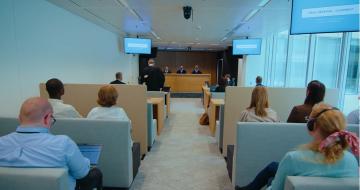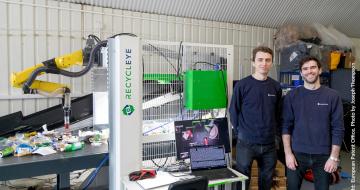Table of Contents
The use of school manuals, atlases, literary documents, films, music… by teachers and researchers is subject to copyright.
In order to promote teaching activities in our society, the legislator provided specific exceptions for teaching and scientific research in the copyright law.
As with all exceptions, very specific conditions must be met before invoking any of these exceptions.
General conditions
The exercising by the author of his moral right of disclosure is an initial general condition that applies to all education and scientific research exceptions with regard to the copyright on works. This condition means that an author who considers his work is completed must agree to the public being able to take knowledge of it.
Quoting the source from which the work is taken and, as far as possible, the name of the author, is the second general condition.
Specific conditions
The specific conditions can be found in the law, under each exception. The case law clarified these conditions over the years.
Citations of works or services
This exception applies to all works and services, provided that the citation of the work or service forms part of a presentation. A teacher may, therefore, use the design of a cartoon character on an exercise sheet he created himself. A researcher may, for example, use one or more phrases from a researcher colleague in his work.
The communication or execution of works or services as part of school activities
This exception also applies to all works and must not necessarily occur within a school establishment. For example, a class may go to the library to listen to a book reading. The exception also contains the possibility of performing a work during a public examination, for example a piece of music with the aim of obtaining a certificate of aptitude or a diploma.
The use of works or services for the purpose of illustrating teaching or scientific research
The use of works or services cannot cause harm to the normal exploitation of the work or service. As a result, a teacher cannot create a syllabus composed entirely of chapters taken from other school books.
The law states that the goal must not be for profit, but it does not prevent educational establishments from asking for payment from the pupils/students for the copies they are given, provided that the establishment does not make a profit.
Moreover, the exception does not distinguish between an analogue communication or reproduction and a digital communication or reproduction. If the communication is digital, it must be secured by the appropriate measures, such as a username and password.
Photocopies made for administrative purposes by the secretariat of an educational establishment or research institution are not included in these exceptions but may be included in the reprography exception.
Lastly, educational establishments and research institutions must pay a fee for this exception.
Anthology
This exception only applies to literary works by deceased authors. If this exception is invoked, a fee must be paid to the heirs or other beneficiaries of the author in question.
General exceptions
In addition to the specific exceptions for education and scientific research, a teacher or researcher may of course invoke other general exceptions specified by law, as long as he meets the conditions of this general exception. Any researcher may, for example, invoke the exception for parody, which is general and not specific to teaching and scientific research.


